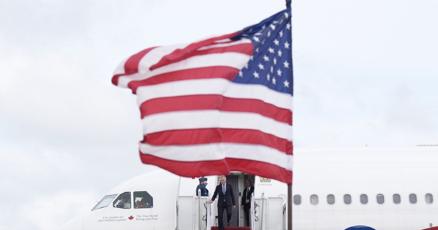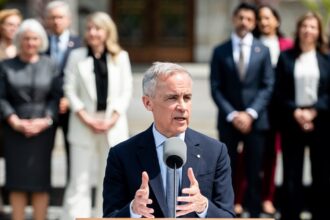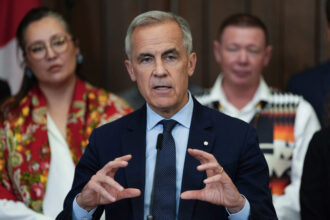In a pivotal first face-to-face encounter that signals a potential reshaping of North American relations, Canadian Finance Minister Mark Carney delivered an unambiguous message to former U.S. President Donald Trump: “Canada will never be for sale.” The high-stakes meeting, which took place amid mounting tensions over trade policy and economic sovereignty, represents the Liberal government’s most direct engagement with Trump since his nomination as the Republican presidential candidate.
Sources familiar with the discussion revealed that Carney, the former Bank of England and Bank of Canada governor, approached the conversation with diplomatic precision while firmly establishing Canada’s economic boundaries. The meeting addressed Trump’s previously articulated intentions to impose sweeping tariffs on Canadian goods—a policy position that has alarmed Canadian officials and business leaders across multiple sectors.
“Minister Carney made it abundantly clear that while Canada values its economic partnership with the United States, our economic sovereignty is non-negotiable,” said a senior official from the Ministry of Finance who requested anonymity due to the sensitive nature of the discussions. “The conversation was respectful but direct, addressing concerns about potential tariffs that could devastate integrated supply chains across the border.”
The timing of this encounter is particularly significant as both nations navigate complex economic challenges. Canada’s economic forecast shows moderate growth amid global uncertainties, while recent economic analysis suggests that new tariffs could disrupt the $2.6 trillion trading relationship between the two countries.
Trump’s campaign has maintained that tariffs would serve as leverage to renegotiate terms more favorable to American manufacturing and workers. However, Canadian officials have consistently countered that such measures would harm consumers and businesses on both sides of the border, particularly in integrated industries such as automotive manufacturing and agriculture.
“This isn’t just a matter of national pride but of economic reality,” explained Dr. Eleanor Wilkins, trade economist at the University of Toronto. “The Canada-U.S. economic relationship is among the most integrated in the world. Disrupting it through tariffs would create cascading effects throughout supply chains that have been optimized over decades.”
The meeting also addressed broader political implications of changing trade dynamics, including potential shifts in Canada’s trade strategy should Trump return to the White House. Prime Minister Justin Trudeau’s government has been quietly developing contingency plans to diversify Canada’s trade partnerships while preparing for potentially difficult renegotiations of existing agreements.
Deputy Prime Minister Chrystia Freeland later commented, “Minister Carney’s background in central banking and international finance positions him uniquely to articulate Canada’s economic interests. Our approach remains consistent—we seek productive relationships with all U.S. administrations while protecting Canadian interests.”
Industry reactions to the meeting have been cautiously optimistic. The Canadian Chamber of Commerce issued a statement supporting the government’s proactive approach while urging continued dialogue. Meanwhile, labor organizations have pressed for assurances that workers’ rights and environmental standards will not be compromised in any future negotiations.
As both countries approach critical electoral crossroads—with U.S. elections in November and Canada’s federal landscape in flux—this initial contact between Carney and Trump may set the tone for future diplomatic and economic relations. Financial markets have responded with measured caution, with the Canadian dollar showing slight volatility following reports of the meeting.
For ordinary Canadians, the implications of this high-level dialogue extend beyond abstract policy discussions to practical concerns about job security, consumer prices, and economic stability. A recent poll conducted by Abacus Data indicated that 73% of Canadians are concerned about the impact of potential U.S. tariffs on their household budgets.
As we witness this delicate diplomatic dance unfold, one question remains paramount: In an era of increasing economic nationalism, can Canada successfully maintain its sovereignty while preserving the vital economic relationship with its largest trading partner?


















